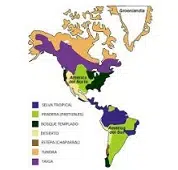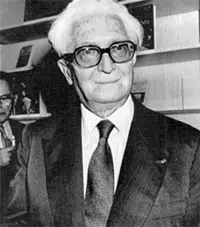 Geohistory is the field of study that links geography and history . It is a discipline devised by the French historian Fernand Braudel (1902-1985), who considered not only the effect of geography on history, but also the consequences of economics on it.
Geohistory is the field of study that links geography and history . It is a discipline devised by the French historian Fernand Braudel (1902-1985), who considered not only the effect of geography on history, but also the consequences of economics on it.
Due to its characteristics, geohistory is considered an auxiliary discipline of history . Its purpose is to analyze the dynamics between societies of other times and the geographical structures in which they developed. According to geohistory, geography does not determine the characteristics of societies, but it does influence their culture and technology, for example.
To understand the social behaviors of the past , therefore, it is important to have knowledge about geography. From economic activities to customs, rituals and leisure, numerous issues are related to the characteristics of the terrain.
According to geohistory, in short, history is always connected to space (that is, to geography). Each of the historical events had a specific geographical location , with actors who interacted in some way with the spatial elements.
Historical methods and geographical methods merge in this scientific discipline that is very useful for the study of regional history . In geohistory, the specialist approaches events from the past to understand them in their spatial and temporal framework .
While geohistory aims at objectivity and scientific knowledge, geopolitics aims to interpret the past (historical and geographical) with the intention of justifying current events and situations.
 As mentioned in the first paragraph, the founder of the historical science that we know as geohistory was Fernand Braudel . He was born in 1902 in Luméville-en-Ornois , France, and dedicated himself to the study of history. Through his work, he revolutionized the historiography of his time, since he was the first to take into account the effects that geography and economics had on history.
As mentioned in the first paragraph, the founder of the historical science that we know as geohistory was Fernand Braudel . He was born in 1902 in Luméville-en-Ornois , France, and dedicated himself to the study of history. Through his work, he revolutionized the historiography of his time, since he was the first to take into account the effects that geography and economics had on history.
Historiography is the science that focuses on the study of history, as well as the art of writing or describing it. There is often debate about the nature of this discipline because some consider it an art: on the one hand there are those who reject its artistic nature, but there are also defenders of a vision that does not take science and art as things. incompatible but considers them complementary.
Braudel spent his childhood in his paternal grandmother's rural house, and that marked him in a very particular way. He never denied his origins , but rather described himself as "a peasant historian", and it was thanks to his exposure to the way of life in the countryside that he became closer to the customs of those people who were so important for the development of a country. His experience throughout those years was key to understanding that there is an unbreakable link between geography, history and economics.
Although it is not the only one, geohistory is a science that is present in our daily lives beyond our technical knowledge: we know that fish predominates in the Japanese and Mediterranean diets, just as we discuss soy production from Argentina, and we are not always aware that these are not arbitrary aspects of its economy, isolated from its history, but rather they are closely linked to it and, of course, to its geography. It is precisely because of their location on the planet, the characteristics of their climate and soil, as well as their proximity to the ocean that these towns were inclined towards one activity or another.
